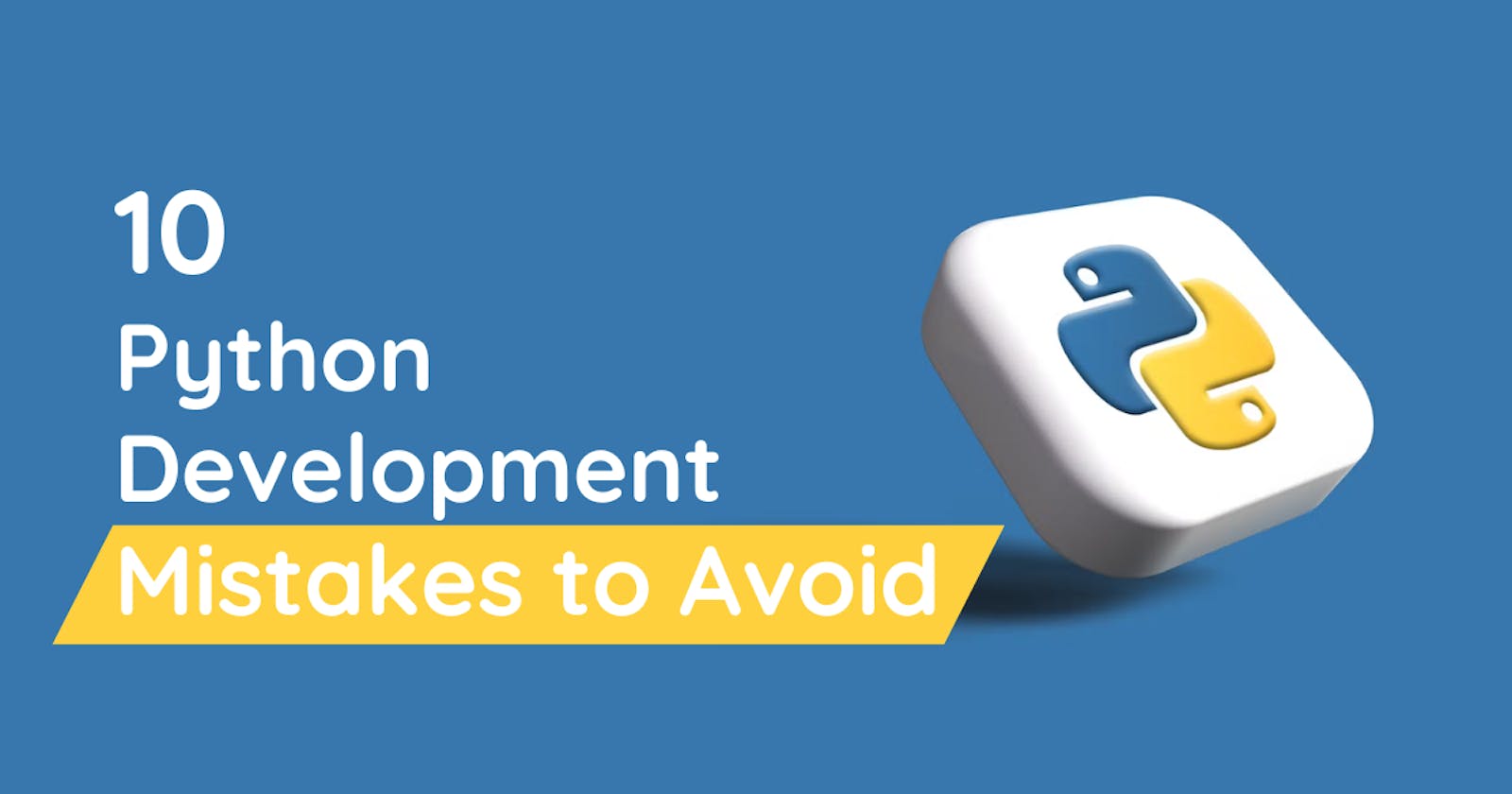Introduction:
Python has grown to become one of the most widely used programming languages in the world thanks to its ease of use and adaptability. Whether you're a seasoned developer or just starting out, mastering Python can be incredibly rewarding. However, like any language, Python has its pitfalls. In this guide, we'll explore some common mistakes in Python programming and how to avoid them, helping you write cleaner, more efficient code.
Not Understanding Python's Indentation:
Python uses indentation to define code blocks, unlike other languages that use braces or keywords. Forgetting proper indentation can lead to syntax errors or unexpected behavior. Always ensure consistent indentation to maintain code readability and functionality.
Misusing Mutable Default Arguments:
Default arguments in Python functions are evaluated only once when the function is defined. Using mutable objects like lists or dictionaries as default arguments can lead to unexpected results, as modifications persist across function calls. Instead, use immutable default arguments or initialize mutable objects within the function.
Overusing Global Variables:
Global variables are supported by Python, but using them too much might make code hard to read and update. Favor local variables whenever possible to encapsulate functionality and reduce dependencies.
Ignoring Error Handling:
Neglecting proper error handling can result in crashes or unpredictable behavior. Always anticipate potential exceptions and use try-except blocks to gracefully handle errors. Additionally, leverage Python's built-in logging module to record errors and debug information.
Using Inefficient Data Structures:
Python offers a variety of data structures, each suited for different tasks. Choosing the wrong data structure can impact performance significantly. Understand the characteristics of lists, sets, dictionaries, and tuples, and select the appropriate one for your specific use case.
Poor Memory Management:
Python's automatic memory management can lead to memory leaks if not used carefully. Avoid creating unnecessary objects, especially in loops, and use tools like context managers or the with statement to ensure proper resource cleanup.
Not Utilizing List Comprehensions:
List comprehensions are a concise and efficient way to create lists in Python. Failure to utilize them can result in verbose code and reduced readability. Familiarize yourself with list comprehensions and leverage them to simplify your code.
Misunderstanding Python's Object Model:
Python's object-oriented paradigm is fundamental to its design. Failing to grasp concepts like inheritance, polymorphism, and encapsulation can lead to suboptimal code structure and design. Invest time in understanding Python's object model to write more robust and maintainable code.
Neglecting Documentation and Comments:
Clear and concise documentation is essential for understanding code, especially in collaborative projects. Neglecting to document functions, classes, and modules can hinder comprehension and lead to confusion. Additionally, use comments strategically to explain complex logic or highlight important details.
Skipping Unit Tests:
Writing unit tests is crucial for verifying the correctness of your code and detecting regressions. Skipping unit tests or writing inadequate test cases can make it challenging to maintain code integrity, especially as projects grow in complexity. Embrace test-driven development (TDD) practices and strive for comprehensive test coverage.
Conclusion:
Python's popularity stems from its simplicity and readability, but mastering it requires diligence and attention to detail. By avoiding these common mistakes and adopting best practices, such as those taught in a best Python Certification Course in Mumbai & all other cities in India. you can write cleaner, more maintainable Python code. Remember, programming is an ongoing learning process, so don't hesitate to explore new concepts and refine your skills continually. Happy coding!
